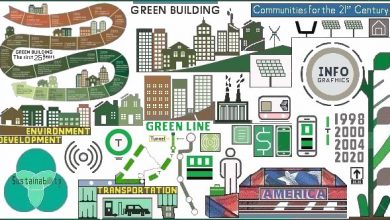
Mr. Chuklev, please tell our readers more about yourself and your professional background?
I am the founder and Deputy Chairman of Professional Association of Robotics and Automation (PARA), an NGO dedicated to strengthening and supporting the robotics ecosystem in Bulgaria. I’ve worked on initiatives such as the the biggest event in the field of robotics in Bulgarian, the first specialized exhibition on educational robotics in Bulgaria, the first interactive map of clubs and schools teaching robotics in the country, the founding of the robotics club at Sofia Tech Park and our robotics and AI incubator.
My professional background is quite multidisciplinary and includes working on projects in London and New York, also being a lecturer at events such as TEDxSofiaUniversity and participating as an economic and tech analyst in multiple media outlets.
What was your first “win” that made you confident that you were doing the right thing?
The first “win” which made us confident Bulgaria needed an ecosystem NGO in the field of robotics was when we received the backing of state institutions, schools, large multinationals, operating in Bulgaria, local startups and integrators for the organization of our first event. Ever since that event gathered the whole Bulgarian ecosystem, we’ve had their support for many other initiatives as well. It’s like each new initiative supports our confidence that we are on the right track with our efforts.
In your opinion, which are the most important current trends that shape the Robotics and AI industry?
The key trends in AI and robotics are that both industries are becoming more efficient, producing robots and algorithms which are easier to communicate with, producing tools which are available for developers globally and becoming widely used for new types of applications.
For example, recently we saw DeepMind collaborating with humans on inventing brand new theorems. This is quite a breakthrough as it is the first time that AI is used to seek out patterns that lead to the establishing a new theorem. DeepMind is also the company that made history in 2016 by becoming the first AI to successfully defeat a world champion in the game of Go.
Also, this year we had the release of GPT-3 which produces human-like text and is probably the most advanced language model ever created. It allows machines to understand and communicate better. At the same time, the company behind GPT-3 – OpenAI made it broadly available to developers.
At the same time China is becoming a key player in the field of AI research and Chinese AI companies such as SenseTime, Baidu and others are on the forefront of next-wave applications. For example, in November Baidu and self-driving startup Pony.ai have received approval to launch their driverless robotaxis in a part of Beijing.
Can you give us examples of successful AI implementation (in Europe)?
Some of the examples I’ve seen successful AI implementations in multiple sectors – incl. hotels, retail, manufacturing, healthcare.
In the field of hotels, I’ve seen a Bulgarian hotel implementing an AI for servicing incoming visitors in six languages, conducting virtual tours of the hotel with online visitors, assisting with bookings as well as making offers for weddings, conferences, and other events. In the field of healthcare, an institution has implemented an AI which recognizes and signals for certain characteristics of an illness in the patient. In the retail sector I’ve seen a couple of retailers implementing AI for monitoring stock availability and making orders. In manufacturing I’ve seen multiple European companies leveraging AI to identify potential downtime by analyzing machine data, scheduling maintenance and identifying where quality issues may occur.
How do you think will AI evolve in the next few years?
Although it’s quite difficult to predict, I can name a couple of tracks where I believe AI will evolve – becoming easier to communicate with, help us be more creative and paving its way into SMEs.
First, as I mentioned, new tools are constantly making machines better in understanding us and communicating with us. We’re seeing this with chatbots, machine interfaces, smart home assistants and many more. Going forward AI will definitely evolve in its interaction with humans.
Second, although some courts have ruled AI cannot be the inventor of a patent, I believe AI-based tools will play a bigger role in creative work going forward – recognizing content, proposing trademark ideas, suggesting topics, keywords and even applicable case law. By doing this, AI will be able to further assist multiple professionals who are involved in creative work – from lawyers to journalists and artists.
And last – in 2021 there are still quite a lot of barriers for AI adoption and integration, especially in SMEs. Some of these barriers will persist, but generally with the adoption of cloud, generation of more data and investing in the right talents, AI will become more affordable and easier to adopt not only in large corporates, but also in SMEs.
What is your advice to all the people who are just starting their career in the Robotics and AI industry?
First, find as early as possible the specific role you want to play in the field of robotics and AI – whether you’d want to be a data scientist, AI&ML engineer, AI researcher, RPA developer, robotics engineer, product manager, business developer or something else.
Second, be prepared that both robotics and AI are industries which require continuous education and lifelong learning. The tech stack in both industries is constantly evolving and you need to evolve with it.
Third, keep in mind that apart from a strong technical background, problem solving, and creativity skills are essential. As long as you have the proper background, desire to learn and the creativity to think outside the box, you can be one of the future makers in the field of robotics and AI.











